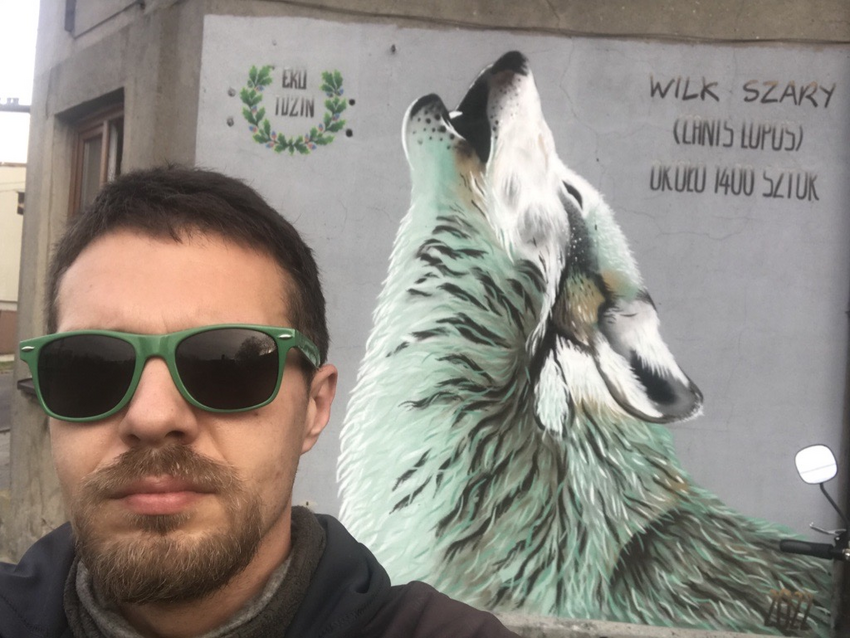
Dr Damian Szymczak studied post-state farm environments in the West Pomeranian Voivodeship in terms of poverty caused by the political transformation in the 90s of the 20th century.
Honourable mention in the competition
For the fifteenth time, the Institute of National Remembrance and the Tadeusz Manteuffel Institute of History, Polish Academy of Sciences have organised the Władysław Pobóg-Malinowski competition "Best Historical Debut of the Year in Poland’s Recent History". Its settlement took place last December.
By the decision of the Competition Commission, Dr Damian Szymczak was awarded a distinction in the competition for his doctoral dissertation entitled "Przyczyny i charakter ubóstwa popegeerowskiego w świetle koncepcji Amartyi Kumara Sena. Studium przypadku województwa zachodniopomorskiego." The supervisor of the thesis was dr hab. Rafał Matera, UL Professor
For this year's edition of the competition, works defended between 1 November 2021 and 31 October 2022 were sent. The list of all winners and honourable mentions can be found on the competition website.
The award ceremony of the competition this year will be a part of the Congress of National Remembrance and will take place on 13-15 April 2023 in Warsaw.
Doctoral dissertation by Dr Szymczak
As part of his doctoral dissertation, Dr Damian Szymczak studied post-state farm environments in the West Pomeranian Voivodeship in terms of poverty that the transformation of the 1990s brought to the region. During the research, Dr Szymczak cycled hundreds of kilometres, talking to the inhabitants of the post-state farm areas, checking whether their lives are really such a black collapse as it has been presented in Arizona film directed by Ewa Bożecka. Dr Szymczak considered the problem through the prism of the concept of Amartya Kumar Sen – an Indian economist. Where did the idea to combine the theory of the Asian economist with the Central European problem of failed agricultural conglomerates come from?
When I decided to start my PhD, I was looking for a topic for myself, but I wasn't sure what path I wanted to take. My later supervisor, and the current Dean of the Faculty, Prof. Rafał Matera came to the rescue suggesting that I should focus on the silhouette of some outstanding economist. The choice fell on Amartya Kumar Sen. As I got deeper into Sen's books, I noticed that he writes a lot about poverty. In the empirical part, I decided to combine his concepts with a model example of poverty enclaves – rural areas, remaining within the area of activity of the former State Agricultural Farms (PGR). State farms functioned for nearly half a century, until the systemic and economic transformation. It involved the liquidation of the socialised agricultural sector in Poland. I narrowed the research down to selected municipalities of the West Pomeranian Voivodeship and that's how the topic was created.
– says Dr Damian Szymczak from the Faculty of Economics and Sociology of the University of Lodz.
I went to this area twice, the first time for two weeks, then for a whole month. I managed to get around much of the voivodeship by bicycle. I conducted interviews with former farm workers, heads of former state-owned communes and local social welfare centres. The interviews conducted with the heads of the communes were aimed at showing the situation from the point of view of the managers who are the disposers of public funds. Their reports were confronted with the picture emerging from the interviews with former state farm employees as the research main subject and potential beneficiaries of the commune's activities. In turn, the research conducted in local social assistance centres illustrated the situation from the point of view of a non-politically involved state social policy institution, simultaneously complementing the first two perspectives. The research results showed how many unfair stereotypes have accumulated around former state-owned farms.
– adds the scientist.
It is also interesting to note that Amartya Kumar Sen also conducted his research by moving around on a bicycle.
Research plans of the scientist from the University of Lodz
In the near future, Dr Damian Szymczak would like to publish a monograph constituting the aftermath of his doctoral dissertation.
I am currently analysing the issue of political outsourcing in Poland. My intention is to show the scale and transparency of this phenomenon. I consider this issue to be extremely important, taking into account the fact that subsidies for political parties that receive at least 3% support in elections come from public funds. In other words, I would like to show the problem of the lack of transparency of political party expenses from the perspective of the voter-taxpayer.
– announces Dr Damian Szymczak.
Edit: Faculty Development Centre, Faculty of Economics and Sociology, University of Lodz
